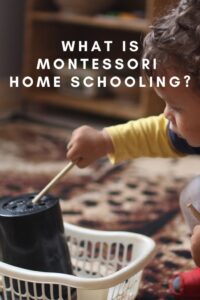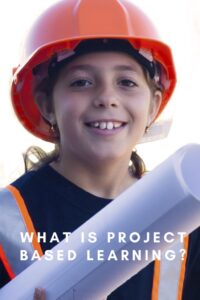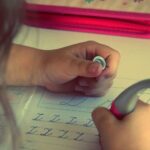
So you’ve decided on home education. Congratulations and welcome to a wonderful world filled with delights and frustrations a plenty! Deciding on the best home education style can be a daunting prospect. The main thing to remember is, what’s right for one child may not be right for another: you need to consider the best approach for your children. How on earth do I do that I hear you ask. Well, you can start by reading up on some different styles of education. See which styles spark an interest with you and which ones sound like they would fit with your children. You are the ultimate expert on your own kids after all!
What are the different types of home education?
Traditional

What is traditional home schooling?
Traditional home schooling is basically bringing school home. With this home school curriculum, you have a timetable with structured lessons each day. Generally you would have work books or worksheets for each subject and mark the work and set tests to gauge progress. You may have text books to work from and an area set up for your children to work in. Traditional home educators tend to follow the national curriculum.
What are the advantages of traditional home education?
The traditional method of home education is a familiar starting point for most parents as it’s generally what you might be most comfortable with. Traditional home schooling is also great for those who require a little more structure to the day (whether that might be you or your little ones).
What are the disadvantages of traditional home education?
One thing to consider when choosing this home education style is whether traditional schooling works for your child. You may have decided to home educate your children because of an issue with the way they were being taught, or the progress they were making. If this is the case then perhaps a traditional style of education isn’t right for them.
Classical

What is Classical home schooling?
A classical home education approach attempts to mirror the types of schooling that took place in ancient Greece and Rome. There are three stages to classical home schooling; these are called the trivium. The first stage is the Grammar stage. This relates to the age of the child rather than a focus on grammar. Children aged 12 and under are in this stage. The grammar stage focuses on knowledge and facts and works on memorisation and repetition. It is based on the belief that, at this age, children don’t need to know the hows and whys but have a great capacity to learn facts and information.
This prepares children for the Logic stage. Here is where the hows and the whys come in. Children in this stage are capable of thinking more analytically and are encouraged to ask why, as it is believed they are now capable of understanding. Children in this stage want to argue and debate, so they are taught how to in this stage. If your child is younger than twelve and is beginning to question, then they may developmentally be ready for this stage. The final stage is the Rhetoric stage. The rhetoric stage builds upon the first two stages and teaches children how to express themselves articulately. In this stage, the hows come into play.
What are the advantages of classical home education?
A classical method encourages children to engage with the processes of learning and encourages logical thinking. The stages of classical education follow the developmental stages of children.
What are the disadvantages of classical home education?
The classical curriculum is very rigid in its approach. There is a massive emphasis on memory recall and may not be suitable for many children.
Charlotte Mason

What is Charlotte Mason home schooling?
The Charlotte Mason method of education has a strong focus on literature and the natural world. Mason believed that we should educate the whole child not just the mind. She wanted children to develop rich relationships with people and the natural world around them. For this method of home schooling you follow what Mason called “living Books” and go outside to learn every day.
What are the advantages of Charlotte Mason home education?
There is an emphasis on creativity. The Mason method of home schooling is a gentle approach that takes each individual child at its core. This method suits children who love the outdoors.
What are the disadvantages of Charlotte Mason home education?
You may struggle with following this style of home education if your children are not lovers of reading, due to its focus on books and literature. Getting outside every day is great in nice weather but can be less fun when it’s been raining all week.
Montessori

Montessori
What is Montessori home schooling?
Montessori home schoolers promote independence in their children. The children are provided with age appropriate, real tools to develop life skills. There is also a huge emphasis on natural materials and real life representations. Montessori was a strong believer in gentle parenting and promoting peace within the child. Children are often left invitations to learning and are left to choose what activities they wish to do. These toys, books and activities are often rotated to follow the child’s interests.
What are the advantages of Montessori home education?
Montessori home schooling is very child centred and child led. A high level of independence is promoted by the Montessori method.
What are the disadvantages of Montessori home education?
Fantasy and the imagination tend to be neglected with a Montessori style education. Following this method can be expensive as Montessori style materials are not cheap. Many believe that children who have been taught by a Montessori approach can struggle in later life when they are required to work to deadlines.
Waldorf

What is Waldorf home schooling?
The Waldorf method of home schooling (also known as the Steiner method) brings all the arts to the forefront of learning. Children are taught through music, dance, sculpture, painting and so on. With this style of learning, subjects are not separated from each other. Instead, you study a unit with a theme usually centred around a story and all the learning takes place centred on that one theme. A unit usually lasts for 2-3 weeks and will include all subjects.
What are the advantages of Waldorf home education?
The Waldorf method teaches the whole child and encourages creativity. The “whole child” focus tends to foster calm and positive children.
What are the disadvantages of Waldorf home education?
This style of learning, although broad, has been criticised for a lack of maths and science learning.
Unit Studies

What is the Unit Studies method of home education?
Unit Studies focus on topics of interest and then link all learning to those topics. Topics can be whatever you like. Some examples include: Space, All about Animals and Vehicles.
What are the advantages of a unit study home education?
Unit studies encourage cross curricular learning, which allow children to make links within their learning and understand the purpose of what they are learning. Unit studies can be linked to a child’s interests and make the learning more enjoyable.
What are the disadvantages of a unit study home education?
Unit studies can take a lot of time to prepare. Whilst links can be made, Maths often has to be taught discretely if you are wanting to follow a specific maths program.
Road Schooling and World Schooling

What is Road Schooling?
Road Schooling is exactly what it says on the tin. Families who road school do their learning whilst travelling around, usually road trips. World schoolers use the world as a learning resource, learning about many things different countries have to offer.
What are the advantages of road schooling?
The world can be a fabulous motivator of learning. Children are immersed in real life situations, buildings, arts and languages. World schooling and road schooling often provide children with a wealth of knowledge and understanding of the world.
What are the disadvantages of road schooling?
Not everyone has the capacity to take their family on world trips or constant road trips. This style of learning may not suit children who have strong links to friendship groups at home.
Forest School

What is Forest School home education?
Forest School uses the outdoor environment to enhance learning. It encourages children to develop independence skills, improve their decision making and raise their self-esteem through small achievable tasks. Forest school encourages children to make choices and follow their own learning. Many homeschoolers who like this style of learning will send their children to forest school sessions once a week, but others use this approach in their daily home ed lives.
What are the advantages of Forest School home education?
Forest school strongly emphasises child led learning and offers up a unique way to explore any curriculum. It also develops an appreciation of the environment and instils a love of nature.
What are the disadvantages Forest School home education?
Whilst many people state that there’s no such thing as bad weather just bad clothing, not all of us are willing to be outside in the rain or cold.
Unschooling

What is unschooling?
Unschooling is a method of home education that is based on the learning theories of John Holt. Unschooling takes traditional schooling methods and throws them straight out the window, believing children learn what they need to learn, when they need to learn it.
What are the advantages of unschooling?
Unschooling, by its very nature, is completely child led. Its very untraditional approach may be perfect for your child if school does not appear to be working for them.
What are the disadvantages of unschooling?
Unschooling may not be the best style of home education for you if you or your child likes a structured approach.
Project Based Learning (PBL)

What is the project based learning style of home education?
Project based learning or PBL takes a project, usually with a physical outcome, and uses this as the focus of learning. Projects tend to be design focused but can be based on anything. Project based learning takes real life problems at the centre of its learning.
What are the advantages of project based learning?
Project based learning allows children to engage with important problems and projects which are relevant to them. The real life element of projects allows children to engage with and see the relevance of their learning. When learning with a project, children learn by doing.
What are the disadvantages of project based learning?
One of the disadvantages of project based learning is that it can be very time consuming. Projects can often take a lot longer than anticipated or projected. Depending on the interest, this type of learning can also come with a hefty price tag.
What is the best style of home education?
There is absolutely no right or wrong answer to this question. The best style of home education will be different for each parent and child. Take some time to read up on the different styles of learning and explore the ones which feel like a good fit for you. Often you’ll find that you will cherry pick different aspects of the approaches that work for you and your children. Petal Resources understands that all children are unique and tries to cater to a variety of home education styles and philosophies.
classicalacademicpress.com has some intro to classical education videos that do not require payment.
For more in depth information on the Montessori style this article is a good start.
PBS provides some great info on unschooling.
Forest School Association is a good source of forest school info.
Plymouth University has uploaded an academic study on project based learning.
Contact us if you would like some help finding sources or additional information for the other types of home education.
Share Below







